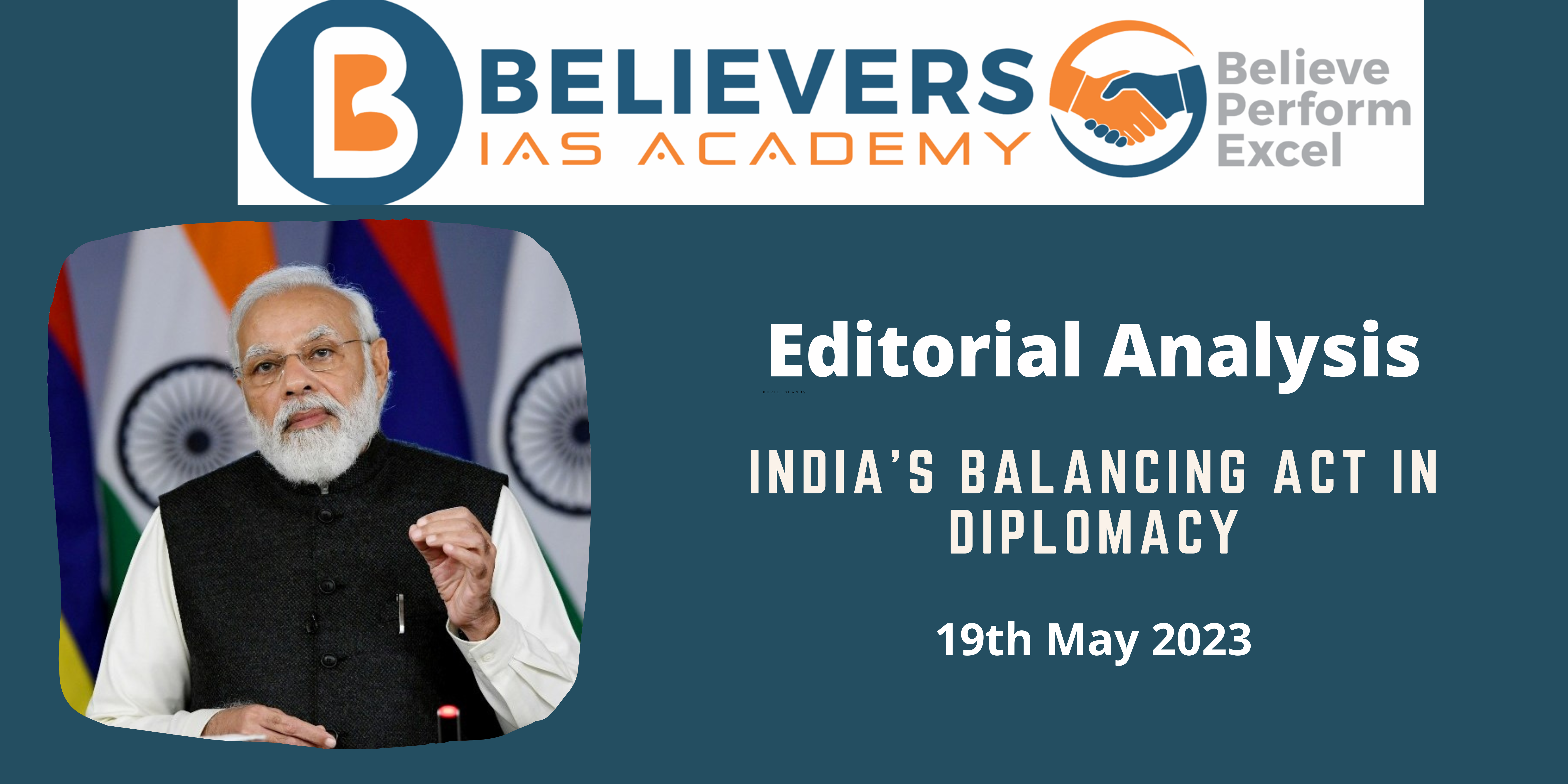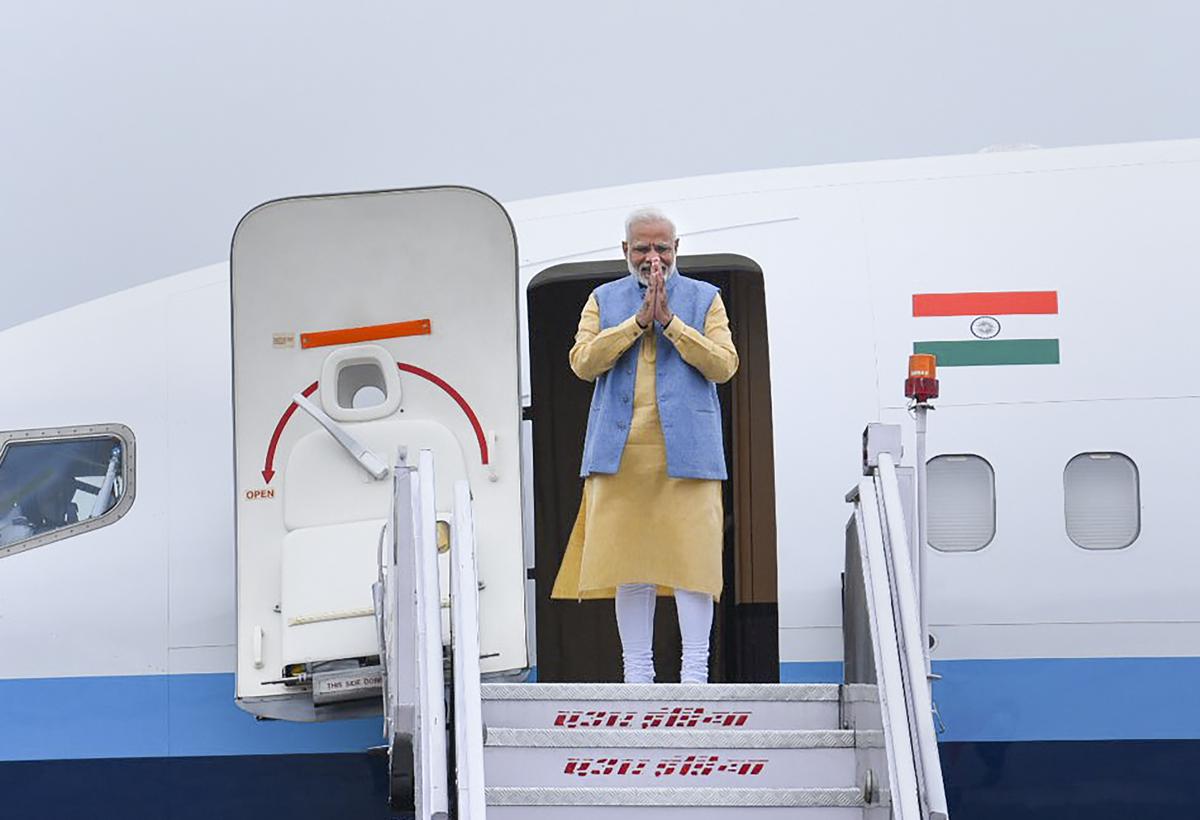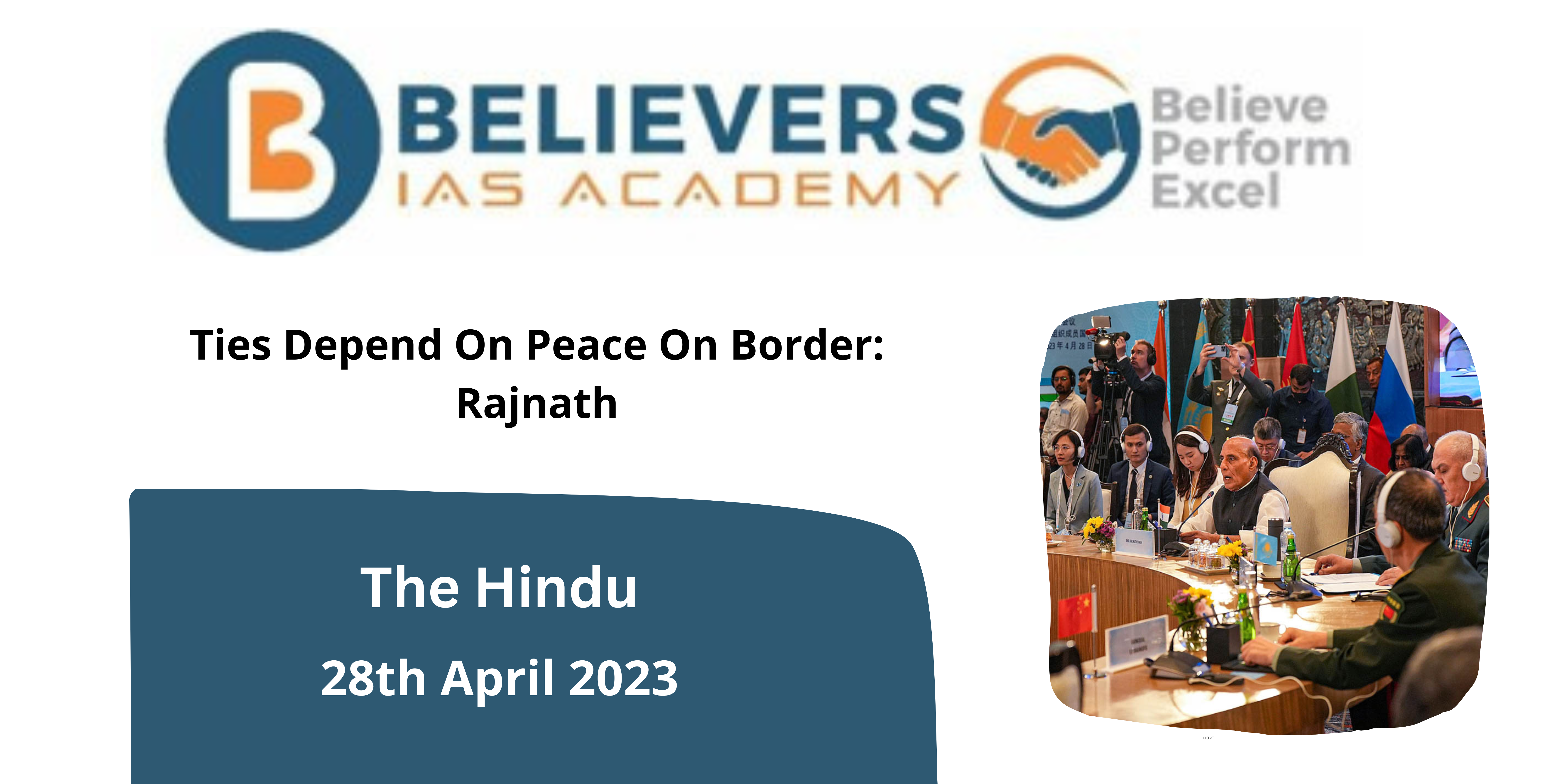India’s Balancing Act In Diplomacy
Context:
- Bilateral issues will take a back seat to India’s position in the multilateral sphere as Prime Minister Narendra Modi travels for a week to Japan, Papua New Guinea, and Australia starting on May 19.
- He will discuss these issues with leaders of the G-7 outreach in Hiroshima, Japan, as
 well as while travelling from there. These demand a very careful balancing act between the two poles of a globe that is becoming more and more divided as a result of the Russian invasion of Ukraine.
well as while travelling from there. These demand a very careful balancing act between the two poles of a globe that is becoming more and more divided as a result of the Russian invasion of Ukraine. - This is a world that also appears uneasy about dealing with China’s geopolitical challenge, concerns about trade access, supply chain dependability, and concerns about the security of food and energy.
Points to Ponder:
- The Prime Minister of India, Narendra Modi, will travel for a week to Japan, Papua New Guinea, and Australia. He will engage in one-on-one conversations with world leaders while attending the G-7 outreach event in Hiroshima, Japan. The Quad leaders will meet with the G-7, as the Sydney Quad Summit has been postponed. In addition, Prime Minister Modi will make a state visit to the US and take part in tactical initiatives to advance India-US relations.
- Hosting the Shanghai Cooperation Organization (SCO) Summit: In July, Prime Minister Modi will host the SCO Summit upon his return from his international activities. Leaders including Pakistan’s Prime Minister Shehbaz Sharif, Russia’s President Vladimir Putin, and China’s President Xi Jinping are among those who are anticipated to attend the meeting. India takes comfort in the SCO’s opposition to unilateral sanctions as a body, and this opposition is a common position across the SCO.
- Balancing multilateral and bilateral issues: The article emphasizes the necessity for India to achieve a balance between tackling significant international concerns and taking care of bilateral ones. It highlights how certain Central Asian nations were irritated by the fact that during the SCO-CFM, bilateral issues like India’s relations with Pakistan, China, and Russia eclipsed multilateral achievements. India wants to keep its focus on multilateral collaboration and avoid repeating the same mistakes.
- International engagements and timing: According to the article, India’s overseas engagements are timed purposefully and not by accident. India benefits from Prime Minister Modi’s interactions with many nations and organizations, which also highlight India’s capacity to preserve equilibrium in the face of international strife.
- Potential challenges: The article outlines probable problems that can prevent India from maintaining its delicate balance. These include the prospect of the U.S. and Europe pressing India to take a side in international conflicts, China’s aggression along the Line of Actual Control, Russia’s actions on the payment issue or defence supplies, and the surprising victory for Ukraine in its battle with Russia.
- India’s standing and upcoming tasks: At international summits like the G-20, India’s ability to generate consensus and produce common statements is considered essential to its credibility. In the following 100 days building up to the G-20 summit, which India will be hosting, India’s ability to maintain a fair balance between competing interests on a global scale will allegedly be put to the test, according to the article.
Similar topics:
SCO Ministers To Discuss Economic Ties


 well as while travelling from there. These demand a very careful balancing act between the two poles of a globe that is becoming more and more divided as a result of the
well as while travelling from there. These demand a very careful balancing act between the two poles of a globe that is becoming more and more divided as a result of the 

